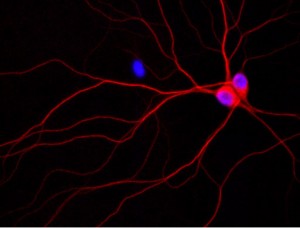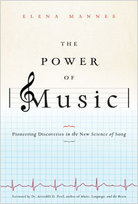Source: RSA
June 2011
 Although traumatic brain injury (TBI) is one of the leading causes of death in the United States, work-related TBI has not been well documented. In a study published in the July issue of the American Journal of Preventive Medicine, researchers describe the epidemiology of fatal TBI in the US workplace between 2003 and 2008. This study provides the first national profile of fatal TBIs occurring in the US workplace. The construction industry had the highest number of TBIs and the agriculture, forestry, and fishing industry had the highest rates.
Although traumatic brain injury (TBI) is one of the leading causes of death in the United States, work-related TBI has not been well documented. In a study published in the July issue of the American Journal of Preventive Medicine, researchers describe the epidemiology of fatal TBI in the US workplace between 2003 and 2008. This study provides the first national profile of fatal TBIs occurring in the US workplace. The construction industry had the highest number of TBIs and the agriculture, forestry, and fishing industry had the highest rates.
“While TBI is an important topic for public health researchers, there has been a lack of attention paid to the investigation of brain injuries occurring in the workplace,” commented lead investigator Hope M. Tiesman, PhD. “Describing the magnitude of the problem, identifying at-risk sociodemographic and occupational subgroups, and documenting trends are vital first steps when developing prevention strategies…Future research should enumerate and describe nonfatal occupational TBIs in the US. An improved understanding of these factors should lead to more focused and tailored prevention strategies. With limited resources available for occupational safety and health programs, the identification and targeting of high-risk populations, including older workers, should be a priority for industry.” [continue reading…]

Image of rat neurons growing in a culture dish. The purple spheres are the cell nuclei and the red corresponds to the localization of phosphorylated tau.X Credit: Jack Reifert, U
In what they are calling a new direction in the study of Alzheimer’s disease, UC Santa Barbara scientists have made an important finding about what happens to brain cells that are destroyed in Alzheimer’s disease and related dementias. The results are published in the online version of The Journal of Biological Chemistry.
Stuart Feinstein, professor of Molecular, Cellular and Developmental Biology, senior author, and co-director of UCSB’s Neuroscience Research Institute, explained: “With dementia, the brain cells, or neurons, that you need for cognitive skills are no longer working properly. Then, they’re not even there anymore because they die. That’s what leads to dementia; you’re losing neuronal capacity.”
Feinstein has studied the protein called “tau” for about 30 years, using test tube biochemistry and a variety of cultured cells as models. Under normal conditions, tau is found in the long axons of neurons that serve to connect neurons with their targets, often far from the cell body itself. Among tau’s major functions is to stabilize microtubules, which are an integral part of the cellular cytoskeleton that is essential for many aspects of neuronal cell structure and function.
It has been known for many years that a small peptide named amyloid beta can cause neuronal cell death and Alzheimer’s disease, although the mechanism for how it works has been poorly understood. Recently, genetic evidence has demonstrated that the ability of amyloid beta to kill neurons requires tau; however, what it does to tau has been enigmatic. “We know amyloid beta is a bad guy,” said Feinstein. “Amyloid beta causes disease; amyloid beta causes Alzheimer’s. The question is how does it do it?” [continue reading…]
 As I write this post I am slowly waking up, ( its 7.00am here is sunny Vancouver). In 30 minutes I will doff my trainers and ipod and start my daily workout. Here’s the thing, without music I struggle through, however the ‘right’ music energizes and spurs me on.
As I write this post I am slowly waking up, ( its 7.00am here is sunny Vancouver). In 30 minutes I will doff my trainers and ipod and start my daily workout. Here’s the thing, without music I struggle through, however the ‘right’ music energizes and spurs me on.
Science all but confirms that humans are hard-wired to respond to music. Studies also suggest that someday music may even help patients heal from Parkinson’s disease or a stroke.
In The Power of Music, Elena Mannes explores how music affects different groups of people and how it could play a role in health care.
She says scientists have found that music stimulates more parts of the brain than any other human function. That’s why she sees so much potential in music’s power to change the brain and affect the way it works.read more or listen to the podcast
Is there a particular song that you find yourself singing, just can’t get it out of your head? This one is mine at the moment.
Source: NPR The Power Of Music: Pioneering Discoveries In The New Science Of Song By Elena Mannes *this is not an affiliate link
